During research conducted with teachers, a common picture was painted of the panicked response to previous earthquakes (pupils jumping off balconies and near stampedes). Currently, before grade nine in schools, no attention is given to DRR. We were invited by teachers to change this.
Young people are important stakeholders. They are often good at sharing information and encouraging behavioural change. They can be particularly influential in rural communities where internet use and media consumption are not widespread, where people do not have the time to attend meetings or the opportunity to participate in trainings. Young people are also the generation who are most likely to be confronted with the impacts of accelerating environmental change.
Interactive workshops with grade seven, eight and nine were conducted in two schools. The workshops involved the identification and assessment of risks in the immediate surrounding environment, group activities, presentations, first aid demonstrations and class discussions. An earthquake drill was also organised to instil good practice, to discourage bad practice and to prevent panic, which often leads to accidents and injuries.
The group activities provided the participants with the opportunity to express themselves using drawings and imagery. It also provided us with further insight into thinking and behaviour before, during and after earthquakes. Class discussions were based around different scenarios and sought to improve understanding and to ingrain good practices. The needs of others, including more vulnerable groups such as the less abled, young children and the elderly were also considered. Two similar workshops were also conducted with young people in Nisankhe.
We hope our efforts to challenge fatalistic beliefs and to strengthen preparedness will be continued and that a culture of prevention will be prioritized. Young people are sometimes wrongly viewed as passive recipients of support. They should be viewed as custodians of their communities who are capable of leading change today.
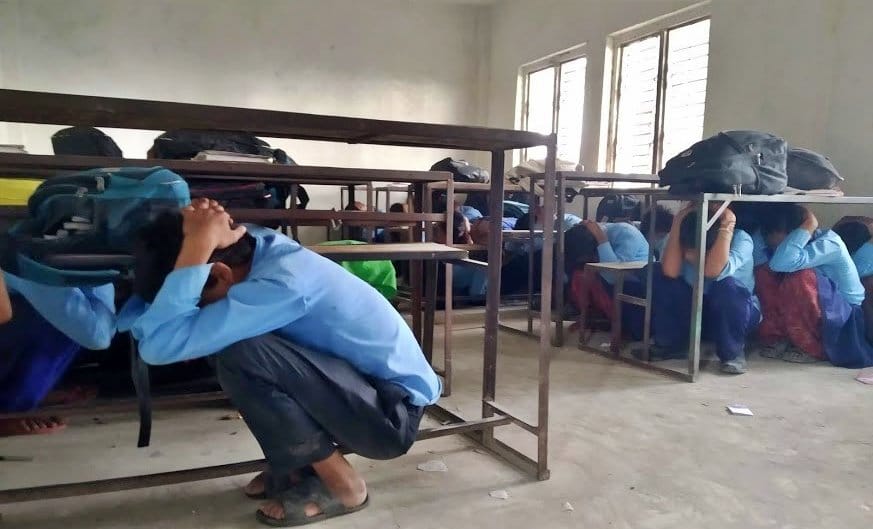

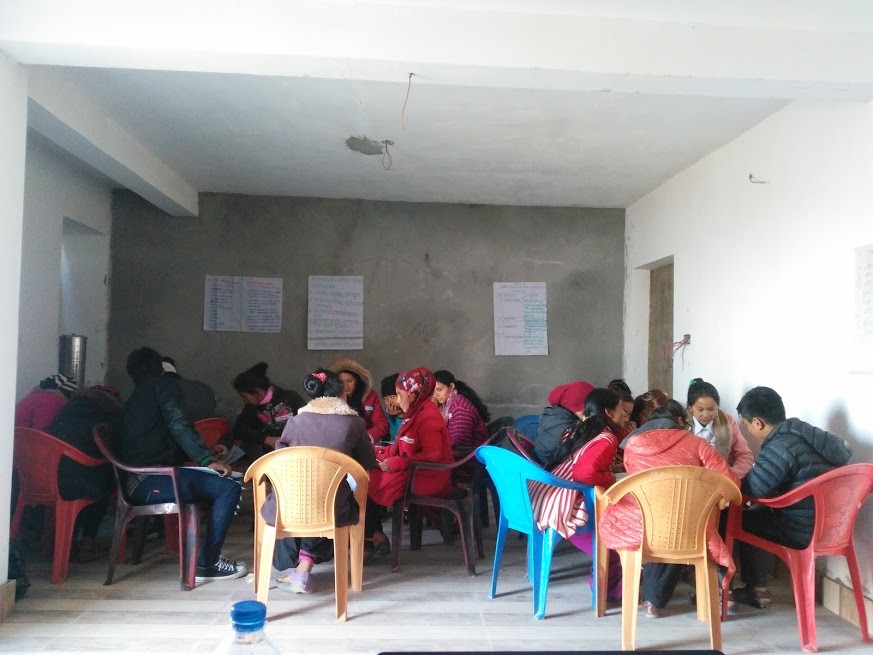
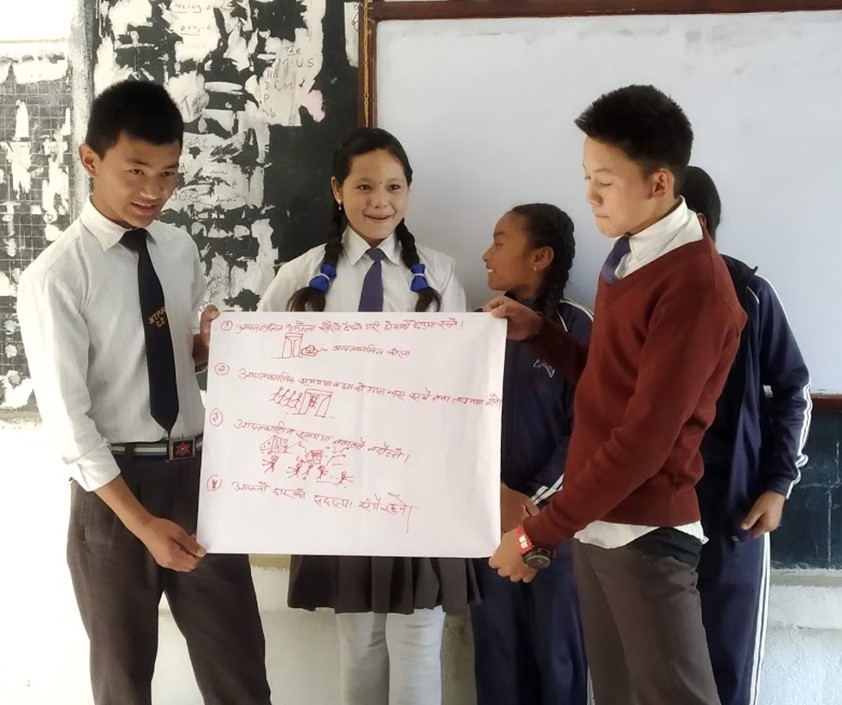
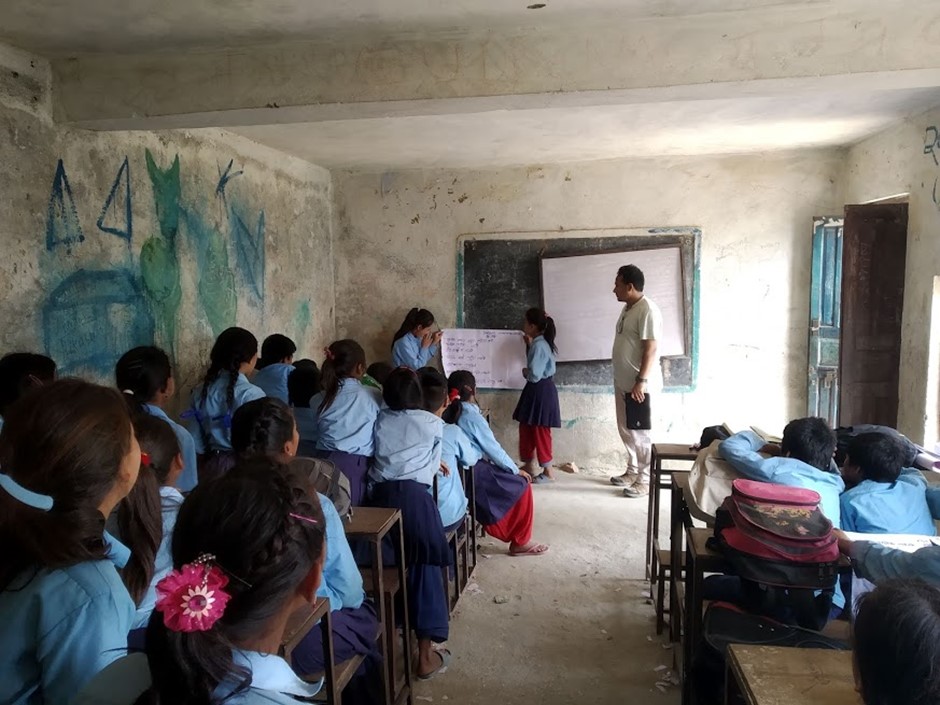
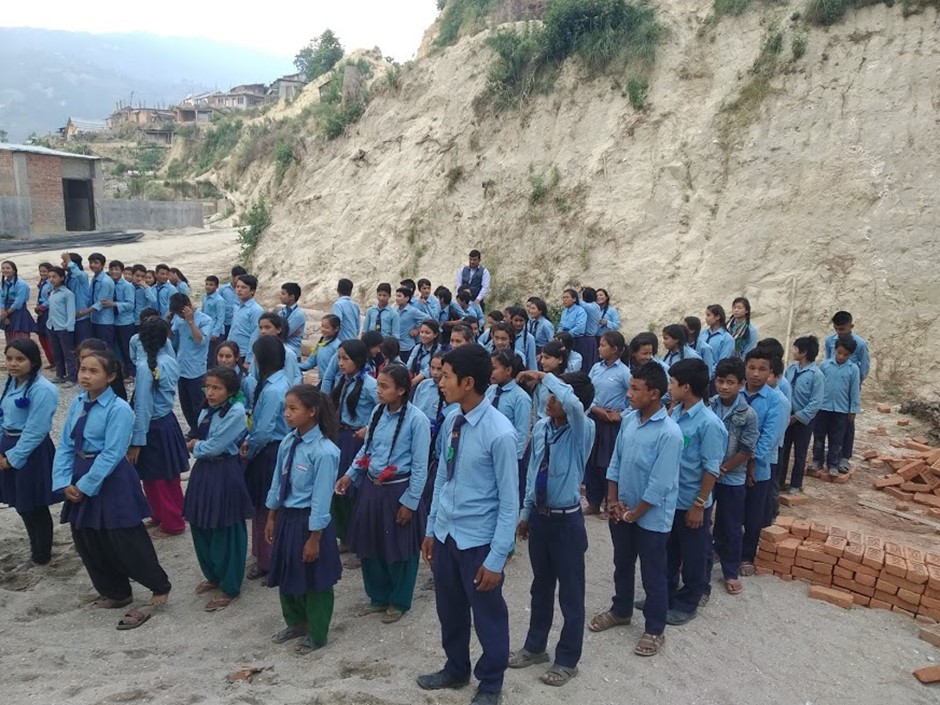
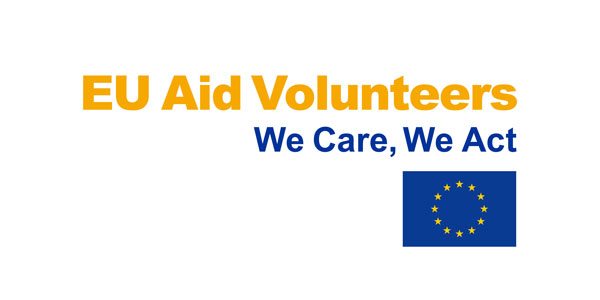
 Member of
Member of